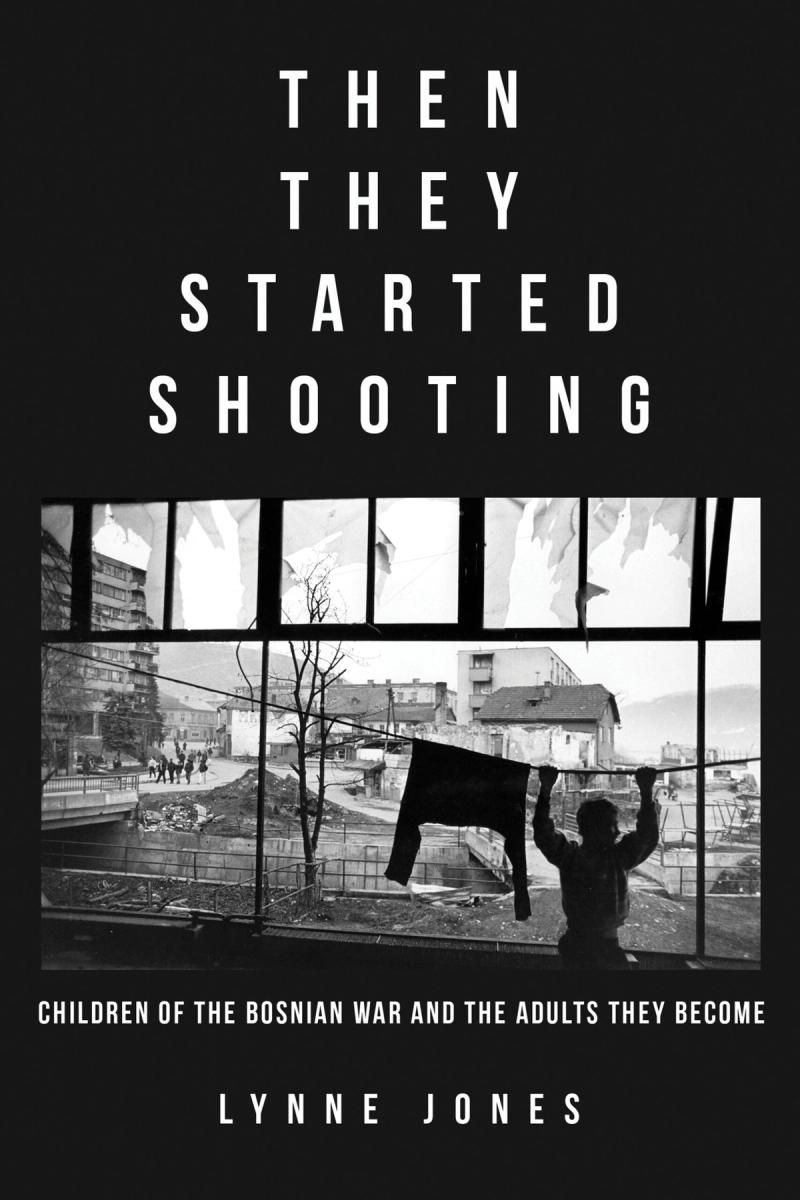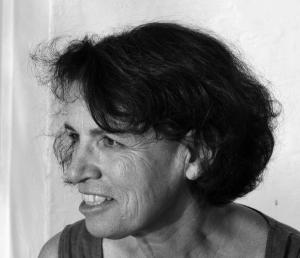Then They Started Shooting upends the traditional discourse on the victims of war by continuing the narrative long after the violence has ended. The stories in this book are eloquently and poignantly recounted, and offer a vital, complex portrait of what the long road to peace looks like.
— Dinaw Mengestu, author of The Beautiful Things That Heaven Bears and How to Read the Air
Then They Started Shooting
Children of the Bosnian War and the Adults They Become
Imagine you are nine years old. Your best friend’s father is arrested, half your classmates disappear from school, and someone burns down the house across the road. Imagine you are ten years old and have to cross a snow-covered mountain range at night in order to escape the soldiers who are trying to kill you. How would you deal with these memories five, ten, or twenty years later once you are an adult?
Jones, a relief worker and child psychiatrist, interviewed over forty Serb and Muslim children who came of age during the Bosnian War and now returns, twenty years after the war began, to discover the adults they have become. A must-read for anyone interested in human rights, children’s issues, and the psychological fallout from war, this engaging book addresses the continuing debate about PTSD, the roots of ethnic identity and nationalism, the sources of global conflict, the best paths toward peacemaking and reconciliation, and the resilience of the human spirit.

Paperback
- ISBN
- 9781934137666
Ebook
- ISBN
- 9781934137673
Lynne Jones discusses war and PTSD in Aeon magazine and talks to Kirkus Reviews about Then They Started Shooting.
Lynne Jones is a child psychiatrist, relief worker, anthropologist, and author of Then They Started Shooting: Children of the Bosnian War and the Adults They Become. She was appointed an Officer of the Order of the British Empire for her work in child psychiatry in conflict-affected areas of Central Europe and has established and directed mental health programs in areas of conflict and natural disaster throughout Latin America, the Balkans, East and West Africa, the Middle East, and Southeast Asia. Her field diaries have been published in O, The Oprah Magazine and London Review of Books, and her audio diaries have been broadcast on the BBC World Service.
A Radcliffe Institute for Advanced Study Fellow, visiting scientist at the FXB Center for Health and Human Rights at Harvard University, research associate in the Developmental Psychiatry Section at the University of Cambridge, and honorary consultant at the Maudsley Hospital in London, Jones was also a senior mental health advisor for the International Medical Corps for seven years and is currently the Early Child Development Adviser for the Aga Khan Foundation in northern Mozambique.
visit author page »Praise for Then They Started Shooting
Beautifully illustrates the way in which people (in this case children) actively engage with the experience of war . . . Highly original.
— Times Literary Supplement
Careful, sensitive . . . a deeply intimate look into the emotional makeup of children of war.
— Kirkus Reviews
Absorbing . . . offers new insights into Bosnian Serb–Muslim relations through the eyes of children.
— Publishers Weekly
Thought-provoking and readable.
— Library Journal
Psychiatrist Lynne Jones, working in Bosnia’s Goražde in 1996, discovered a striking puzzle: most children exposed to the extreme trauma of bombing, rape, or ‘ethnic cleansing’ were emotional, but not ‘mentally ill.’ Written with an engaging style by a caring doctor with unique experience in setting up clinics in conflict zones, Jones describes children in this Muslim town, detailing how their interpretation of trauma protected them or rendered them vulnerable. Careful to be balanced, she also listened to the Serbian children in the neighboring town, and revisited these children on both sides of the conflict years later. This remarkable book not only contributes to social history—including our understanding of the genocide in Srebrenica—but also to psychiatry. Her astonishing work challenges the medical model in understanding human responses to cruelty.
— Simon Baron-Cohen, Professor of Developmental Psychopathology, Cambridge University, and author of The Science of Evil: On Empathy and the Origins of Cruelty
Profound . . . Rarely do we get the opportunity to delve into the thoughts of the young caught up in such a tragedy—and meet them not just once in their lives but again years later. This is a moving, well written and above all, deeply disturbing book.
— Tim Judah, Europe correspondent for Bloomberg World View, Balkans correspondent for The Economist, and author of The Serbs: History, Myth and the Destruction of Yugoslavia
Part narrative, part analysis, part thoughtful reflection, this book belongs among the classic accounts of children and war.
— Jennifer Leaning, M.D., S.M.H., Harvard School of Public Health
Lynne Jones brings to the extreme situation she describes a truly unique combination of hands-on communally oriented psychiatric help; sensitive research on the impact of war and upheaval on children; and an astute sense of the interplay of political policies and psychological behavior. . . . The book not only deepens our understanding of what happened in the former Yugoslavia but contributes greatly to our more general grasp of the consequences of death, loss, and dislocation, and the stubborn human persistence in the face of them.
— Robert Jay Lifton, author of The Nazi Doctors: Medical Killing and the Psychology of Genocide and Witness to an Extreme Century
One of the most illuminating books to have emerged out of the embers of the Bosnian war. Few outsiders have acquired such an inside knowledge of the thoughts and feelings of ordinary Bosnians, on both sides of the wartime divide.
— Noel Malcolm, author of Bosnia: A Short History and Chairman of the Bosnian Institute in London
Human rights investigations tend to produce snapshots at the moment of abuse. Rarely do we have occasion to look at the aftermath. Lynne Jones adds the dimension of time. With remarkable insight and sensitivity, she follows a group of young Bosnians from both sides of the Serb-Muslim conflict as they grow up. We see how they try to cope with, comprehend, and transcend the horrors that their elders have visited upon their communities. Their successes and failures deepen our understanding of human resilience and how people rebuild their lives from tragic circumstances.
— Kenneth Roth, Executive Director, Human Rights Watch
Lynne Jones is an internationally-known expert on the effects of war on children. Her description of the legacy of the savage war in Bosnia is a shattering but necessary read. . . . This book should be in the knapsack of every international administrator.
— Brendan Simms, author of Europe: The Struggle for Supremacy

